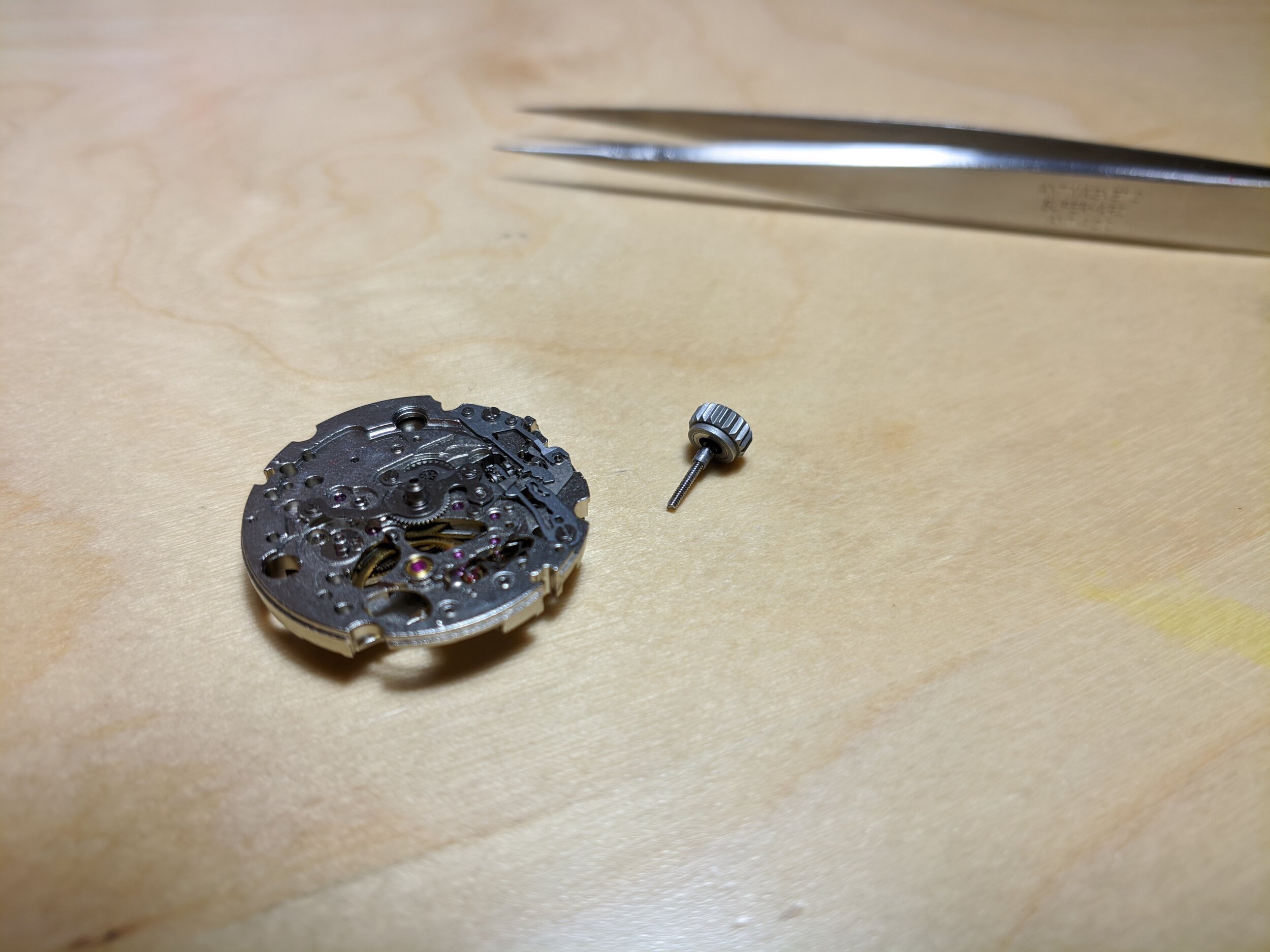How to Get a Broken Stem Out of a Watch
4 ways to extract a broken stem from a movement
The unfortunate accident: the stem broke off and the broken bit is still in the movement
Sometimes, you drop the watch, or you bend the crown the wrong way, and the crown stem gets snapped off midway — the much dreaded broken stem. Depending on how much of the broken stem is left in the movement, this can be an easy fix or a difficult repair. Here are a few ways you can try to extract a broken stem from a movement.
The tweezer method
If the broken stem is visible or somehow still accessible, you can try this method. For this method, you want to place the movement face down, and have something to support the movement and prevent the second hand post from receiving any pressure. This can be, for our dive watch, the chapter ring (also facing down), put underneath the movement so that the chapter ring supports the movement; alternatively, if you have a bare movement, an ordinary movement holder will do.
The crown removal button is circled in red.
Then you need to do two things: press down on the crown stem release spot (see attached image), and while keeping it depressed, try to use a pair of tweezers to grab the broken part of stem (tweezers should go into the movement through the hole where the stem goes into the movement), and pull it out. You might have to work bit by bit to extract the stem completely.
The tap it method
If the broken stem seems to be out of reach, then you might have to try this method. You should hold the movement in one hand, movement perpendicular to the working surface, and the hole where the stem goes in pointing down (see second image for reference); use the other hand to use tools to keep pressing down on the crown stem release spot. Now you might need someone else to help you with this, gently tap on top of the movement in order to dislodge the stem. If the stem is loose, it should fall out by gravity. But be careful not to tap too hard, or else the shock might damage the movement.
The magnet method
If the stem is still quite stuck after trying the previous two methods, you can try this. This method is made possible because the stem is made of steel, so it is magnetizable, and you can use a piece of magnet to pull it out. But it’ll require you to have a demagnetizer on hand, as the movement needs to be demagnetized for it to function again.
Keep the stem release button depressed, and use a piece of strong magnet to attract the stem and then pull it out. Most importantly, you must demagnetize the movement immediately, and then check on a timegrapher to see if it’s still magnetized. For guide on demagnetization, you can refer to this article.
The solve it all method
If all else fails, it’ll require a movement disassembly to retrieve the broken stem. Depending on the movement, you may only need to disassemble the keyless work, or disaasemble most of the movement to access the broken stem. If you don’t know how to do it, it is a good idea to leave the work to a professional watchmaker.
Lesson learned
As you can see, a broken stem is nothing to worry about, but it can still be quite an inconvenience during watch assembly. Therefore, it is good practice to avoid any pressure on the stem either by bending it or inserting into the case and movement at an odd angle. Moreover, even after the watch is assembled, when the crown is pulled out, the stem is more suspectible for breakage since it receives less support from the case. Therefore, remember to push the crown back in every time you finish setting time.












Blued hands and screws are ubiquitous existences in the history of watchmaking. Behind that frequent appearance though is a history and science that go beyond the aesthetic value of flame bluing.